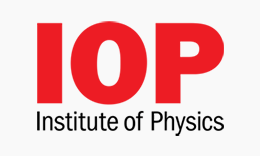Physics Code F303 Attend an Open Day Attend an Open Day Clearing places available – 0800 121 40 80
Apply NowKey Facts
F303-
UCAS Tariff
128 - 120
-
Course duration
4 years
Available for September start 2025
Further details on entry requirements
Apply NowKick start your career prospects with our MPhys course. The career-enhancing Physics degree at Aberystwyth University is accredited by the Institute of Physics (IOP) and designed for you to fulfil your potential in a supportive learning environment.
Physics is one of the oldest academic disciplines, but one which makes significant contributions to modern society, with theoretical breakthroughs feeding into new sciences and fostering modern technologies.
The concepts of Physics form the basis of most scientific language and the subject finds its way into most modern science and technology, enhancing the scope for your future employment prospects.
Course Overview
Modules September start - 2025
Please note: The modules listed below are those currently intended for delivery during the next academic year and may be subject to change. They are included here to give an indication of how the course is structured.
| Module Name | Module Code | Credit Value |
|---|---|---|
| Algebra and Differential Equations * | PH16210 | 10 |
| Calculus * | MP10610 | 10 |
| Dynamics, Waves and Heat * | PH10020 | 20 |
| Electricity, Magnetism and Matter * | PH11120 | 20 |
| Further Algebra and Calculus * | MP11010 | 10 |
| Laboratory Techniques for Experimental Physicists and Engineers (20 Credits) * | PH15720 | 20 |
| Laboratory Techniques for Experimental Physicists and Engineers (30 Credits) * | PH15030 | 30 |
| Modern Physics | PH14310 | 10 |
| Physics Career Planning and Skills Development * | PH12910 | 10 |
Options
| Module Name | Module Code | Credit Value |
|---|---|---|
| Astronomy | PH18010 | 10 |
| Communication and Technology | PH19510 | 10 |
| Energy and the Environment | PH19010 | 10 |
| Module Name | Module Code | Credit Value |
|---|---|---|
| Electricity and Magnetism * | PH22510 | 10 |
| Mathematical Physics * | PM26020 | 20 |
| Numerical Techniques for Physicists | PH26620 | 20 |
| Optics | PH22010 | 10 |
| Practical Research Skills * | PH25720 | 20 |
| Principles of Quantum Mechanics | PH23010 | 10 |
| Sensors, Electronics & Instrumentation | PH24520 | 20 |
| Thermodynamics | PH21510 | 10 |
| Module Name | Module Code | Credit Value |
|---|---|---|
| Concepts in Condensed Matter Physics | PH32410 | 10 |
| Lasers and Photonics | PH34510 | 10 |
| Materials Physics | PH33810 | 10 |
| Particles, Quanta and Fields | PH33020 | 20 |
| Project (40 Credits) | PH37540 | 40 |
| Semiconductor Technology | PH33610 | 10 |
| Module Name | Module Code | Credit Value |
|---|---|---|
| Advanced Quantum Physics | PHM3010 | 10 |
| Advanced Research Topics | PHM7020 | 20 |
| Advanced Skills in Physics | PHM6420 | 20 |
| Electromagnetic Theory | PHM2510 | 10 |
| Major Project * | PHM5860 | 60 |
* Also available partially or entirely through the medium of Welsh
Careers
Teaching & Learning
Student Testimonials
Typical Entry Requirements
UCAS Tariff 128 - 120
A Levels ABB-BBB with B in Physics and B in Mathematics
GCSE requirements (minimum grade C/4):
English or Welsh and Mathematics
BTEC National Diploma:
DDM-DMM with specified subject and B in A level Mathematics
International Baccalaureate:
32-30 points overall with 5 points in Physics and 5 points in Mathematics at Higher Level
European Baccalaureate:
75% overall with 7 Physics and Mathematics
English Language Requirements:
See our Undergraduate English Language Requirements for this course. Pre-sessional English Programmes are also available for students who do not meet our English Language Requirements.
Country Specific Entry Requirements:
International students whose qualification is not listed on this page, can check our Country Specific Entry Requirements for further information.
The University welcomes undergraduate applications from students studying the Access to Higher Education Diploma or T-level qualifications, provided that relevant subject content and learning outcomes are met. We are not able to accept Access to Higher Education Diplomas or T-levels as a general qualification for every undergraduate degree course.
Our inclusive admissions policy values breadth as well as depth of study. Applicants are selected on their own individual merits and offers can vary. If you would like to check the eligibility of your qualifications before submitting an application, please contact the Undergraduate Admissions Office for advice and guidance.

